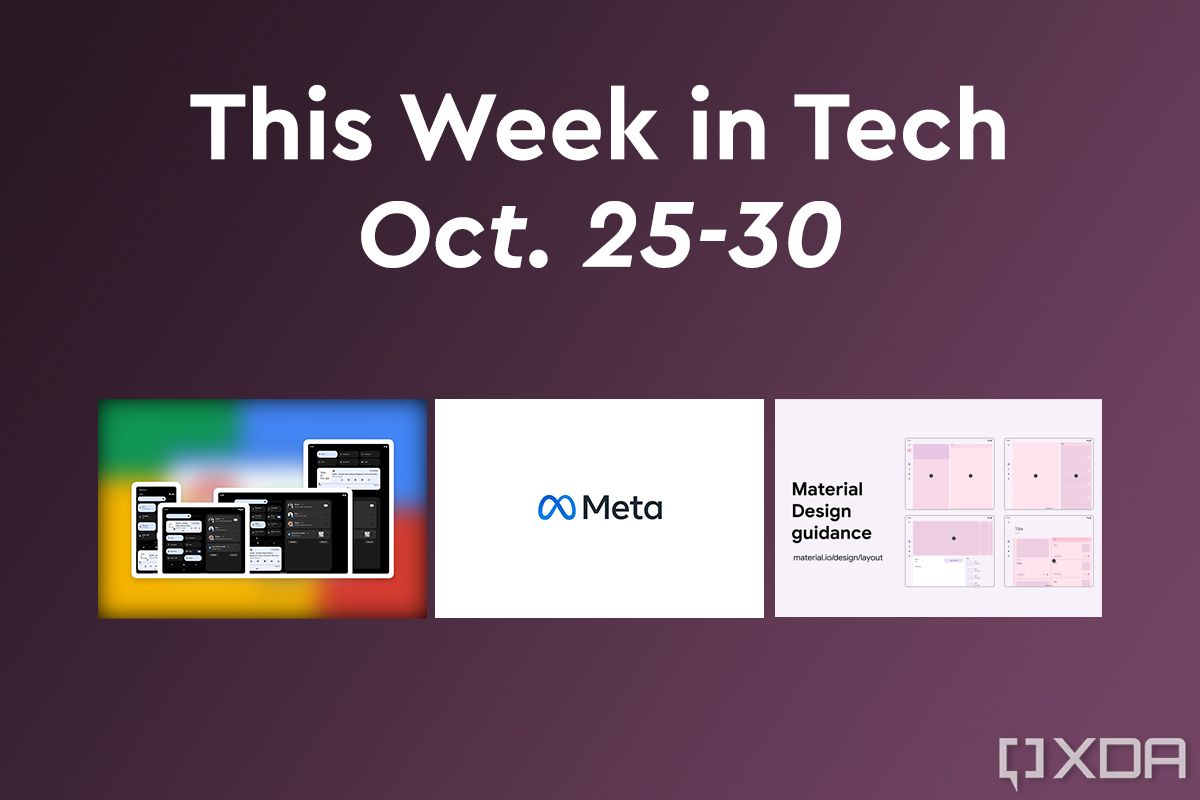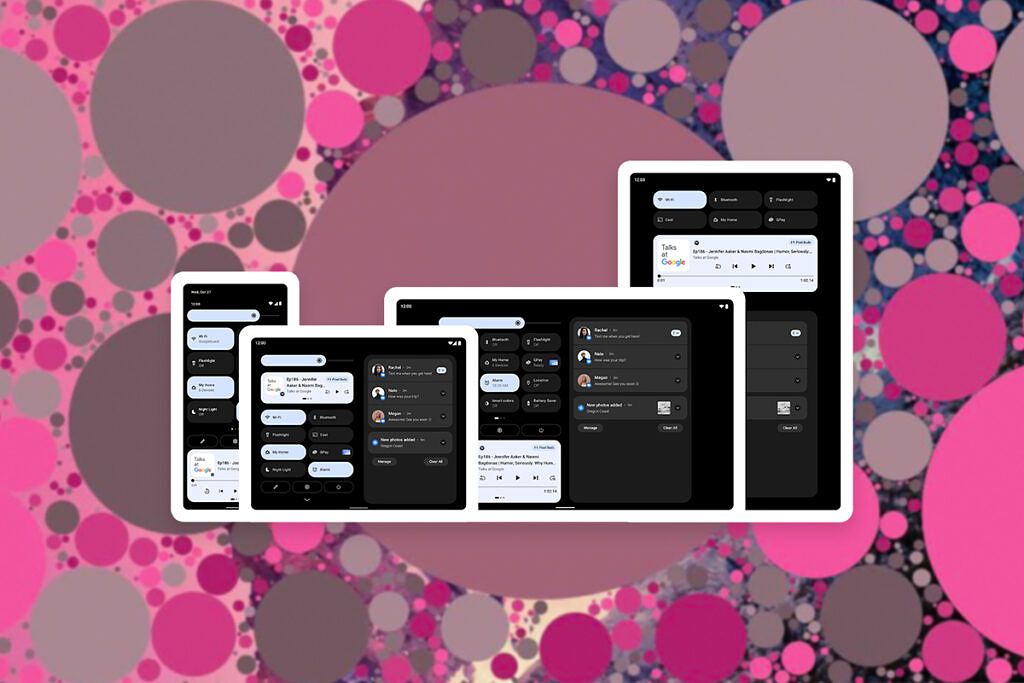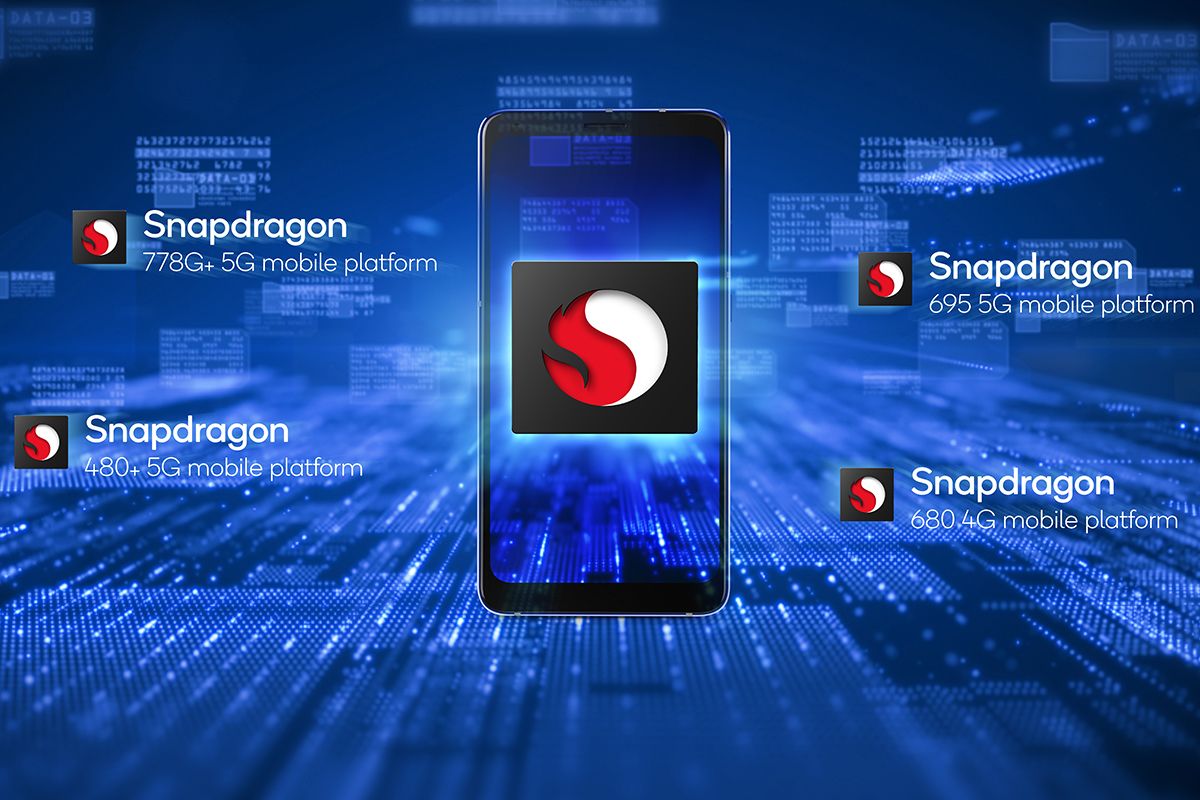After last week's frenzy, this week in tech was a little relaxed. Even then, we saw a few significant announcements, like Google announcing Android 12L, Qualcomm releasing four new mid-range chips, and Facebook changing its name. If you missed any of our coverage, here's a brief recap of all the noteworthy developments in the tech world this week.
Android 12L announced
At the Android Dev Summit this week, Google officially announced Android 12L -- a feature drop purpose-built for large screen devices. We had previously seen Android 12L in the wild, but at the time, we referred to it as Android 12.1. However, Google has now confirmed that the feature drop will be called Android 12L, but the company is yet to reveal what the 'L' stands for.
Android 12L brings a host of new features to enhance the Android experience on large-screen devices like foldables, tablets, and Chromebooks. It packs several UI refinements that improve how the operating system utilizes the extra screen real estate, a new taskbar to give users quick access to apps, split-screen mode improvements, and letterboxing improvements.
Google has already rolled out the first Android 12L developer preview. The company plans to release three beta updates over the next few months and a stable build before the end of Q1 2022. While the update is purpose-built for large-screen devices, it will also roll out to Google's Pixel lineup.
New developer tools
With Android 12L, Google aims to improve the Android experience on large-screen devices as a whole. So it has also released various tools to help developers build responsive apps that work well on foldables, tablets, and Chromebooks. The company has added reference devices to Android Studio, a Layout validation tool, and a resizable emulator.
Google has also introduced new WindowManager APIs to help developers build responsive UIs for their apps that adjust to any screen size. The WindowManager library includes Activity embedding, Window Size Classes, and a common API surface for window features like folds and hinges.
Qualcomm 7, 6, & 4 series chips
Qualcomm announced four new mid-range chips this week -- the Snapdragon 778G Plus 5G, Snapdragon 695 5G, Snapdragon 680 4G, and Snapdragon 480 Plus 5G. The Snapdragon 778G Plus 5G is a small step above the Snapdragon 778G with faster CPU and GPU performance. The Snapdragon 695 5G succeeds the Snapdragon 690 from last year and features mmWave 5G support, 30% faster graphics rendering, and 15% improved CPU performance.
The Snapdragon 680 is a new mid-range chipset for 4G smartphones. It's based on Qualcomm's Kryo 265 CPU cores and features the Adreno 610 GPU. Lastly, the Snapdragon 480 Plus 5G is a slightly improved version of the Snapdragon 480 from earlier this year, featuring better CPU and GPU performance than the previous model.
Facebook is now Meta
During its Connect event this week, Facebook's Mark Zuckerberg confirmed the company's new branding. "We are at the beginning of the next chapter for the internet and it's the next chapter for our company too...To reflect who we are and the future we hope to build, I'm proud to share that our company is now Meta," Zuckerberg said in a blog post.
In addition to Facebook's new name, we also learned that the social media giant is working on a smartwatch to rival the Apple Watch. Check out the leaked render in our previous coverage.
Other stories you shouldn't miss
Along with these announcements, we share the following stories that you shouldn't miss:
- JioPhone Next to launch with Google and Jio's collaborative effort — Pragati OS
- JioPhone Next pricing officially revealed ahead of launch
- New Motorola-branded smartwatch with a circular display spotted on FCC
- Google blocked ad competition and skirted privacy regulations, court filings reveal
- Experience Material You theming on older phones with Lawnchair 12
- Apple has released macOS 12 Monterey to the public, here's how to update
- Sony's latest smartphone features a massive 1.0-inch sensor and variable aperture
- This is what the Surface Neo would have looked like in real life
- Google explains the reasoning behind Android 12's Internet Quick Settings tile
- T-Mobile will soon let you pickup, trade-in, and return devices at stores even if you bought online
- Google Camera 8.4.167 starts rolling out through the Play Store
- Microsoft is reportedly working on a low-cost laptop with a new Windows 11 version
- You can now transfer WhatsApp chats from iPhone to Pixels and Android 12 devices
- WhatsApp may soon ask users to verify their identity to make payments
- WSATools makes it easier to sideload Android apps on Windows 11
- Google really wants to fix Android's emoji problem
- The new Redmi Note 11 lineup is here with up to 120W fast charging and improved cameras
- The Redmi Note 11 Pro will likely come to India as the Xiaomi 11i
- Get Pixel 6's Magic Eraser on older Pixels with Google Photos 5.64
- PSA: Trying out Windows Subsystem for Android? Install an Android launcher to make your life easier
XDA's thoughts on the latest hardware and software
In addition, we published editorials, reviews, first impressions, and comparisons for several new devices and software this week. You can check those out by following the links below:
- Google Pixel 6 Pro Review: Fantastic everyday phone with an undeniable Exynos inspiration
- MacBook Pro 16 (2021) Review: Apple finally does justice to Pros with the M1 Max
- Realme 4K Smart Google TV Stick Review: Enough to douse Amazon's Fire?
- Lenovo Smart Clock 2 Review: Lovely design, Questionable utility





